Itchy scalp – the bane of our existence, the itch that just won't quit, and the uninvited guest at the most inopportune moments. We've all been there, stealthily attempting to scratch our heads during an important meeting or a romantic date. But fear not, for this article is your ultimate guide to winning the battle against that persistent itch!
The short answer to banishing itchy scalp lies in identifying the root cause (pun intended) and implementing targeted treatments. Keep reading as we delve into the mysterious world of itchy scalps, exploring common culprits like dandruff, dry skin, and product buildup. We'll also share essential tips, tricks, and remedies to help you reclaim your sanity and restore your scalp to its itch-free glory. So let's bid farewell to the itch and embrace relief for good!
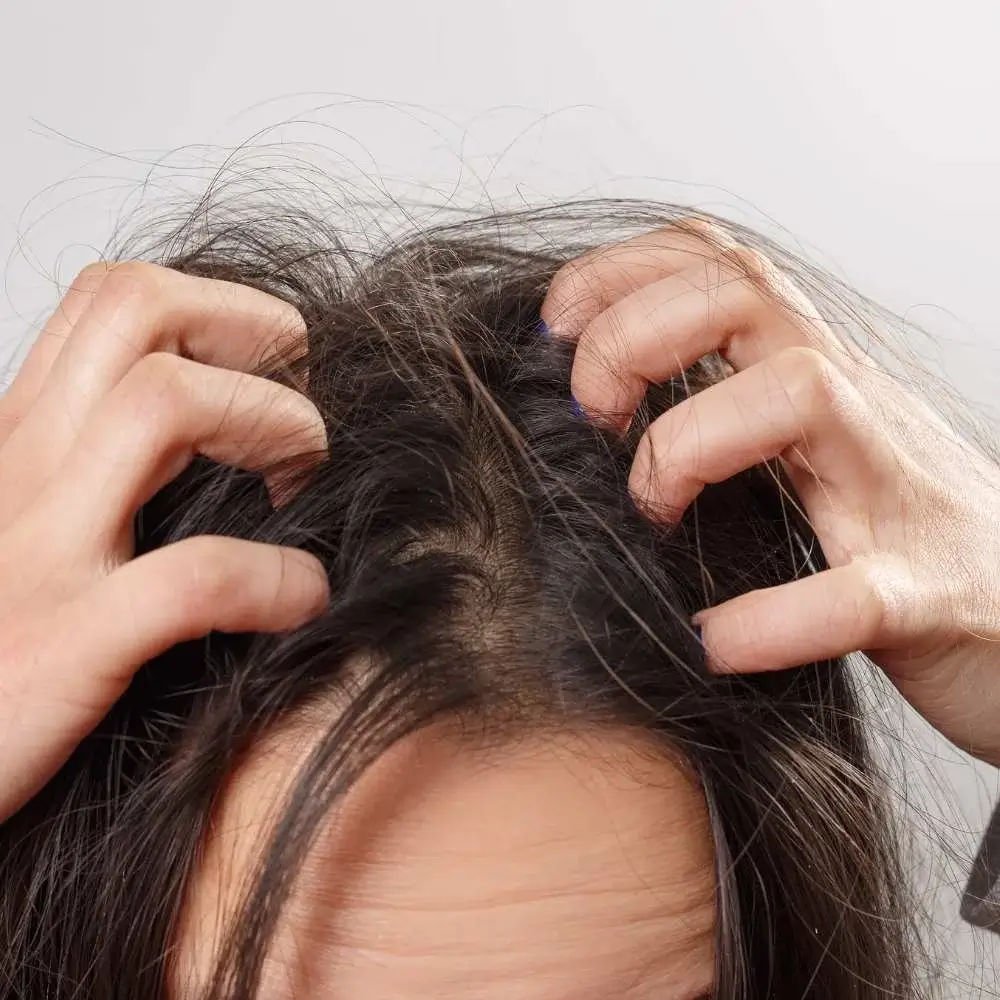
Understanding Itchy Scalp Issues
Itchy scalp – a common problem that many of us face, but one that can be incredibly annoying and frustrating. If you're reading this article, chances are you've experienced the discomfort of an itchy scalp at some point in your life. You know the feeling: that incessant urge to scratch your head, which only seems to make things worse. But what exactly causes an itchy scalp, and more importantly, how can you find relief?
Common Causes of Itchy Scalp
If you're anything like me, you've probably had your fair share of head-scratching moments (literally). You know, those times when you're out and about, trying to resist that irresistible urge to scratch your noggin, so you don't look like a total weirdo. But what's behind this maddening itchiness? Let's dive into some possible culprits.
Dandruff Drama: Ah, dandruff – the most notorious cause of an itchy scalp. In a nutshell, it's just an annoying buildup of dead skin cells on our scalps. Some people are more prone to dandruff than others, thanks to factors like dry or oily skin, certain skin conditions, and even stress. If you suspect dandruff is your arch-nemesis, fear not! Try using a dandruff shampoo once a week, give your scalp a nice massage with an anti-dandruff oil or cream pre-shampoo, and remember to hydrate and eat well for overall skin health.
Seborrheic Dermatitis Shenanigans: This pesky skin condition can also lead to an itchy scalp, causing redness, flaking, and all-around irritation. It's believed to be caused by an overgrowth of yeast on the skin, with risk factors including stress, fatigue, cold weather, and oily skin. To tackle seborrheic dermatitis, follow similar steps as dandruff – use an anti-dandruff shampoo containing ketoconazole or selenium sulfide, massage your scalp with anti-dandruff oil or cream, and stay hydrated and eat healthily.
Psoriasis Problems: Psoriasis, a chronic autoimmune condition, can also play a role in causing an itchy scalp (and affect other body parts as well). While there's no known cure, treatments can help alleviate symptoms. Follow the same steps as above – use an anti-dandruff shampoo, massage your scalp with anti-dandruff oil or cream, and focus on hydration and a healthy diet.
Okay, so you've tried every trick in the book, from sneaky chopstick-scratching to dandruff shampoos, but nothing seems to work. Your head feels like it's on fire, and focusing on anything else is mission impossible. But don't worry, we've got your back! We've done the research and found the most fantastic shampoo for an itch-free scalp. This magical potion has brought relief to countless itchy-scalp sufferers, and we're confident it'll work wonders for you too. So why wait? Click on the link and check the prices today. Happy shopping, and may your scalp be forever itch-free!
Finding Relief for Itchy Scalp
The key to treating an itchy scalp is to first identify the underlying cause. Once you know what's causing the itch, you can take appropriate steps to address the issue. Here are some tips for finding relief:
Switch Your Hair Products: If you suspect that your shampoo, conditioner, or styling products are causing your itchy scalp, try switching to a gentler, hypoallergenic alternative. Look for products specifically designed for sensitive skin and avoid those with harsh chemicals or fragrances.
Moisturize Your Scalp: If dry skin is the culprit behind your itchiness, make sure to keep your scalp well-moisturized. Use a hydrating shampoo and conditioner, and consider applying a natural oil, like coconut or jojoba oil, to your scalp for added hydration.
Treat Dandruff: If dandruff is causing your itchy scalp, look for a medicated shampoo containing ingredients like zinc pyrithione, selenium sulfide, or ketoconazole. These ingredients can help control the overproduction of oil and reduce flaking.
Consult a Dermatologist: If you're unsure what's causing your itchy scalp or if you've tried various treatments without success, consider consulting a dermatologist. They can help diagnose the cause of your itchiness and recommend appropriate treatments, such as prescription medications or specialized shampoos.
Dealing with an itchy scalp can be frustrating, but there are ways to find relief. By understanding the potential causes and seeking appropriate treatments, you can enjoy a comfortable, itch-free scalp. Don't let an itchy scalp hold you back – take action today and put an end to the discomfort and embarrassment.
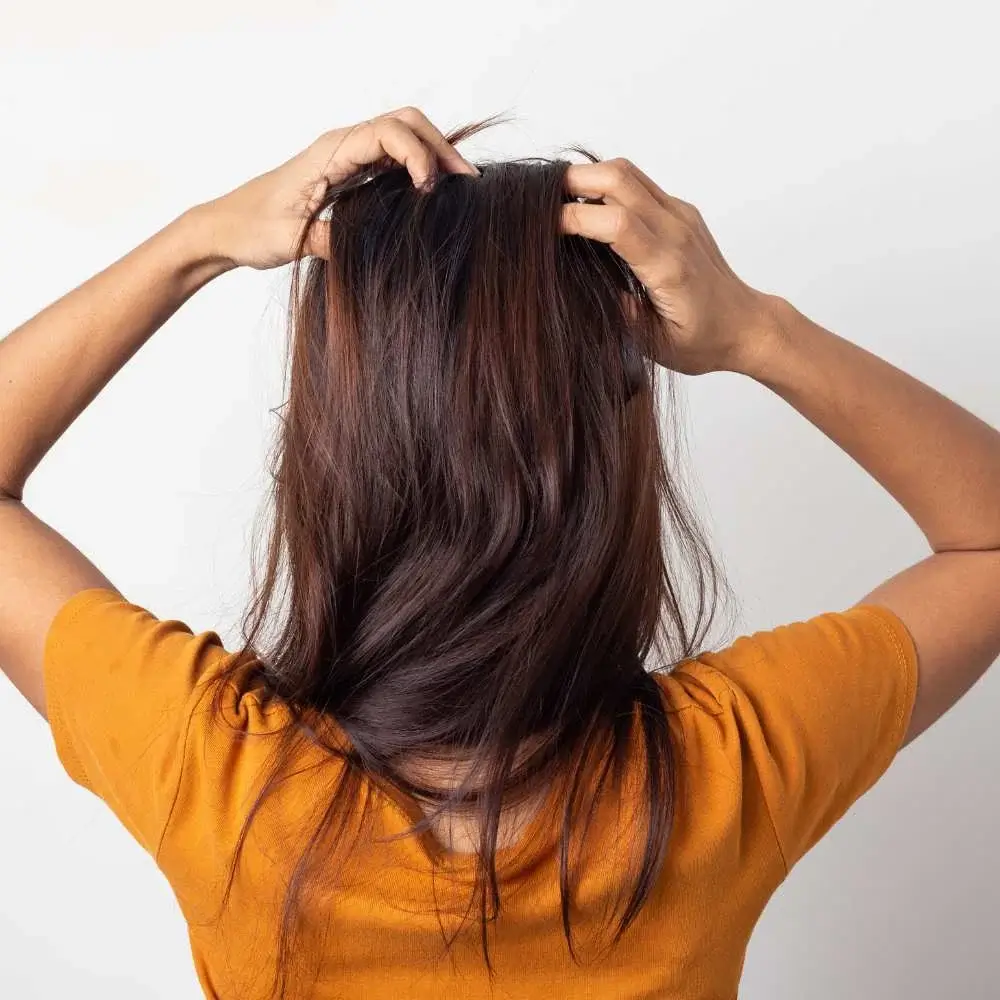
The Journey to Find the Best Shampoo for Itchy Scalp
Itchy scalp can be a real nuisance, making you feel uncomfortable and self-conscious throughout the day.
Finding the right shampoo to tackle this issue can seem like a never-ending quest, especially with so many products on the market claiming to be the ultimate solution.
But fear not! We're here to guide you on your journey to finding the best shampoo for your itchy scalp.
Identifying Your Specific Needs
Before embarking on this quest, it's essential to understand the root cause of your itchy scalp, as we've discussed in the previous section.
Once you've identified the primary cause – be it dandruff, dry skin, allergies, skin conditions, or infections – you can narrow down your search for a shampoo that specifically targets your issue.
Looking for the Right Ingredients
When searching for the perfect shampoo to alleviate your itchy scalp, it's crucial to pay attention to the ingredients.
Here's a quick rundown of some key ingredients to look for, based on the underlying cause of your itchiness:
Dandruff: For dandruff-related itchiness, look for shampoos containing zinc pyrithione, selenium sulfide, or ketoconazole. These ingredients help control oil production and reduce flaking.
Dry Skin: If your itchy scalp is a result of dry skin, opt for a shampoo with hydrating ingredients like glycerin, aloe vera, or natural oils like coconut or jojoba oil.
Allergies: If you suspect that an allergy is causing your itchy scalp, choose a hypoallergenic shampoo free from harsh chemicals, sulfates, and synthetic fragrances.
Skin Conditions: For skin conditions like psoriasis and eczema, look for shampoos containing salicylic acid, coal tar, or tea tree oil. These ingredients can help soothe inflammation and reduce itching.
Infections: If you're dealing with a fungal or bacterial infection, consider using an antifungal or antibacterial shampoo containing ingredients like ketoconazole or pyrithione zinc.
Reading Reviews and Seeking Recommendations
Another essential step in your journey to find the best shampoo for your itchy scalp is to read reviews and ask for recommendations from others who have faced similar issues.
Online reviews, forums, and social media groups can provide valuable insights into how effective a particular shampoo is for addressing itchy scalp.
Don't be afraid to reach out to friends, family members, or even your hairstylist for their suggestions as well.
Trial and Error: Finding Your Perfect Match
Finally, remember that finding the ideal shampoo for your itchy scalp might involve some trial and error.
What works for one person may not work for another, so be patient and give each product a fair chance before moving on to the next.
Keep track of the shampoos you've tried and take note of how your scalp responds to each one.
The journey to find the best shampoo for your itchy scalp may be challenging, but with patience and persistence, you'll eventually discover the perfect product to suit your needs.
By understanding the cause of your itchiness, paying attention to ingredients, reading reviews, and being open to experimentation, you'll soon be on your way to a comfortable, itch-free scalp!
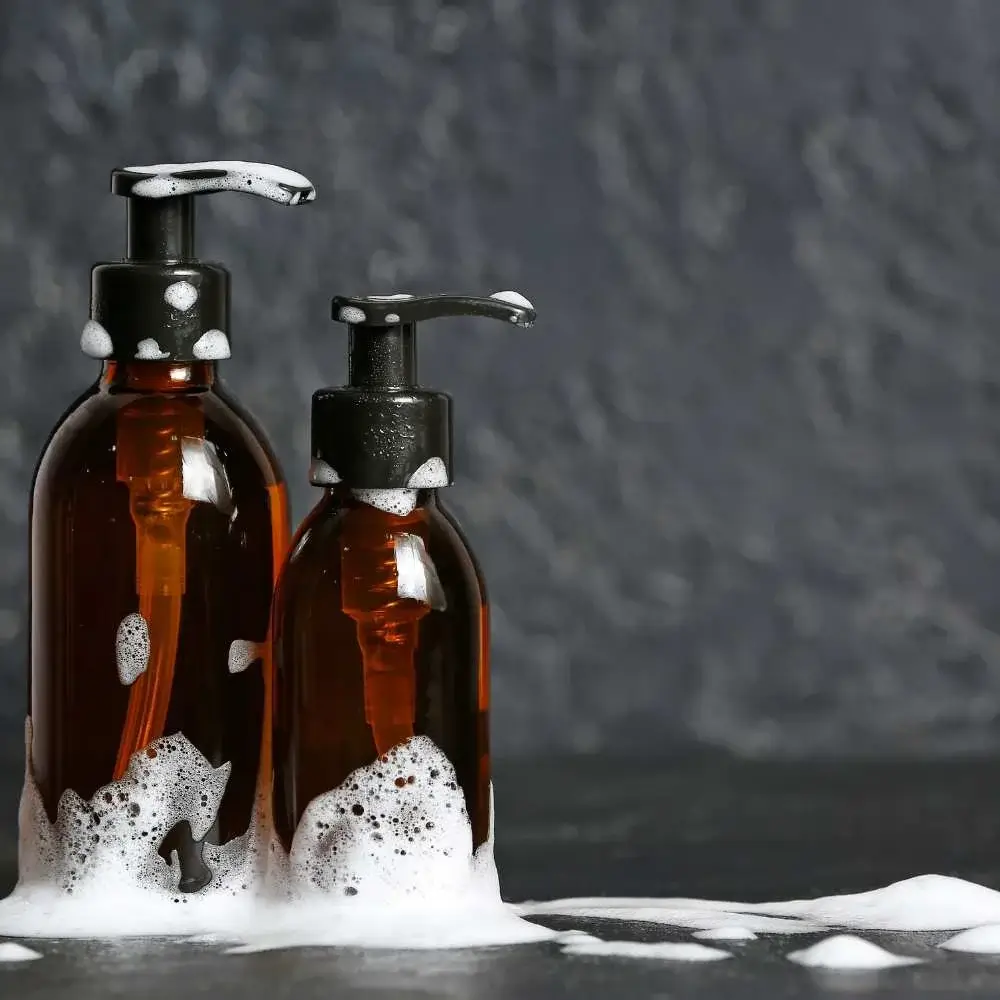
Criteria for Evaluating Shampoos for Itchy Scalp
Finding the right shampoo to combat itchy scalp can be a daunting task, given the plethora of options available on the market.
To simplify the process and help you make an informed decision, we've put together a list of criteria to consider when evaluating shampoos for itchy scalp.
Ingredients for Specific Causes
As discussed earlier, it's essential to choose a shampoo with ingredients that address the underlying cause of your itchy scalp.
Whether it's dandruff, dry skin, allergies, skin conditions, or infections, make sure the shampoo you choose contains ingredients known to be effective against your specific issue.
Gentle and Soothing Formulation
When dealing with an itchy scalp, it's crucial to opt for a shampoo with a gentle and soothing formulation.
Harsh chemicals, sulfates, and synthetic fragrances can further irritate your scalp and exacerbate the itchiness.
Look for shampoos with natural, calming ingredients like aloe vera, chamomile, or oatmeal to help soothe and nourish your scalp.
Hypoallergenic and Free from Irritants
If you have sensitive skin or suspect that your itchy scalp is a result of an allergic reaction, choose a hypoallergenic shampoo.
These shampoos are free from common irritants and allergens, reducing the risk of triggering an adverse reaction.
Moisturizing Properties
A well-hydrated scalp is less likely to become itchy and irritated.
When evaluating shampoos, look for those with moisturizing ingredients like glycerin, hyaluronic acid, or natural oils such as coconut, jojoba, or argan oil.
These ingredients can help maintain your scalp's moisture balance and prevent dryness.
pH-Balanced
Our scalp has a naturally acidic pH, which helps maintain a healthy balance of oils and keeps harmful bacteria at bay.
It's important to choose a shampoo with a pH level that closely matches your scalp's natural pH (typically between 4.5 and 5.5) to avoid disrupting this delicate balance.
Positive Reviews and Testimonials
One of the best ways to gauge a shampoo's effectiveness in treating itchy scalp is by reading reviews and testimonials from others who have tried the product.
Pay close attention to reviews from individuals who share similar itchy scalp issues as yours, and take note of any recurring themes or concerns.
Brand Reputation and Quality
Lastly, consider the reputation and quality of the brand when evaluating shampoos for itchy scalp.
Well-established brands with a history of producing high-quality hair care products are more likely to offer reliable and effective solutions for your itchy scalp woes.
Finding the perfect shampoo for your itchy scalp may require some research and experimentation, but by using these criteria as a guide, you can make a more informed decision.
Remember to consider the ingredients, formulation, hypoallergenic properties, moisturizing capabilities, pH balance, reviews, and brand reputation when choosing the right shampoo to relieve your itchy scalp and enjoy a more comfortable, itch-free life!
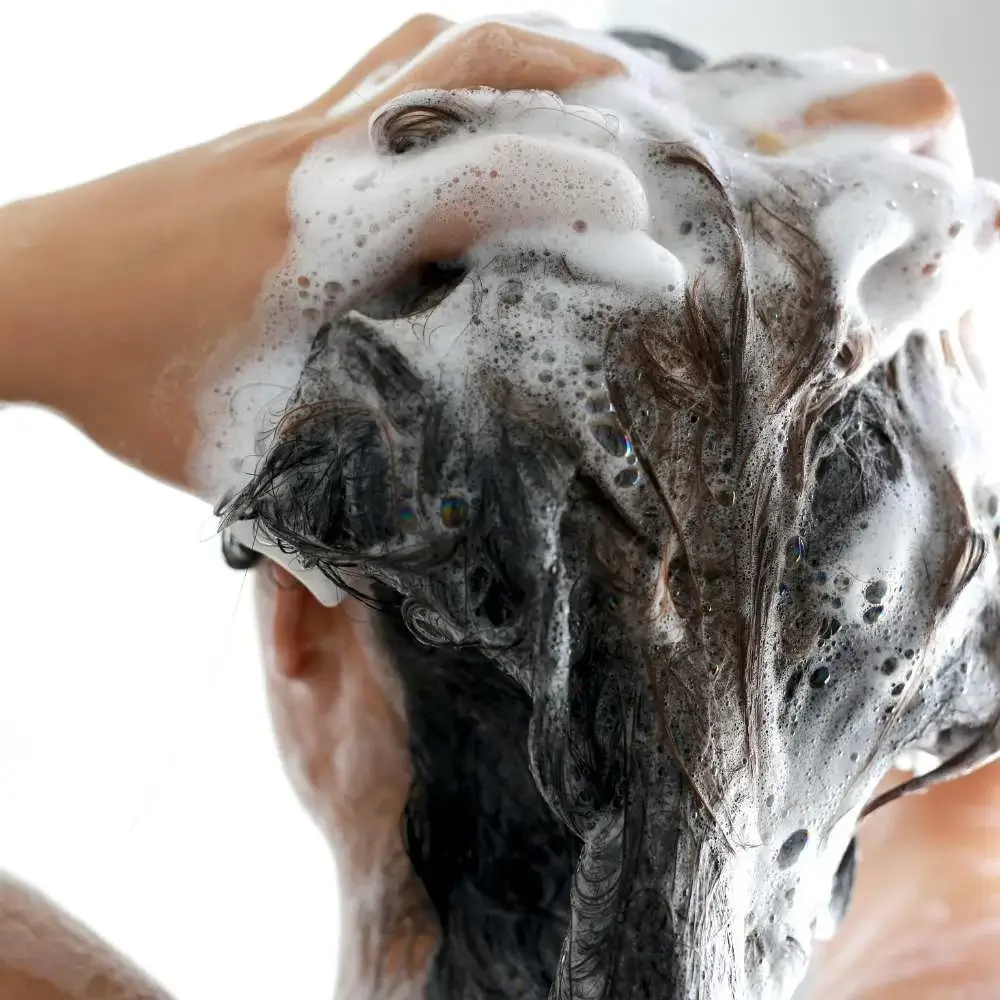
Tips on Using the Shampoo for Best Results to Combat Itchy Scalp
So, you've finally found a shampoo that seems promising in addressing your itchy scalp issues.
But are you getting the most out of it?
Here are some tips on using your shampoo effectively to ensure the best possible results in relieving your itchy scalp.
1. Follow the Manufacturer's Instructions
Each shampoo is unique, and following the manufacturer's instructions is crucial for achieving optimal results.
Make sure to read the label carefully and adhere to any specific guidelines regarding usage frequency, application methods, or additional steps required.
2. Properly Wet Your Hair and Scalp
Before applying your shampoo, thoroughly wet your hair and scalp with lukewarm water.
This helps to open up the hair cuticles and allows the shampoo to penetrate more effectively, ensuring a deep cleanse and better treatment of your itchy scalp.
3. Apply Shampoo Strategically
When applying your shampoo, focus primarily on the scalp rather than the hair strands, as this is where the itchiness originates.
Use your fingertips to gently massage the shampoo into your scalp, ensuring even coverage and stimulating circulation.
4. Don't Overdo It
It's essential not to overuse shampoo, as this can strip your scalp of its natural oils and exacerbate dryness and irritation.
A small, coin-sized amount of shampoo is usually sufficient for most hair lengths. If necessary, adjust the quantity according to your hair length and thickness.
5. Give the Shampoo Time to Work
Allow the shampoo to sit on your scalp for a couple of minutes before rinsing.
This gives the active ingredients enough time to work their magic and provide relief from itchiness.
However, be cautious not to leave the shampoo on for too long, as this may lead to further irritation.
6. Rinse Thoroughly
When it's time to rinse the shampoo from your hair, make sure to do so thoroughly, using lukewarm water.
Any residual shampoo left on your scalp can lead to buildup and irritation, so take your time to ensure a complete rinse.
7. Follow Up with a Conditioner
After shampooing, apply a conditioner designed for sensitive or itchy scalps to help lock in moisture and maintain your scalp's natural balance.
Remember to focus the conditioner on the hair strands rather than the scalp to avoid any potential irritation.
8. Be Consistent and Patient
Consistency is key when it comes to treating an itchy scalp.
Stick to a regular hair care routine, and be patient, as it may take several weeks for your scalp to adjust and show improvement.
Using the right shampoo for your itchy scalp is only half the battle – knowing how to use it effectively is just as important.
By following these tips, you can maximize the benefits of your chosen shampoo and pave the way toward a more comfortable, itch-free scalp.
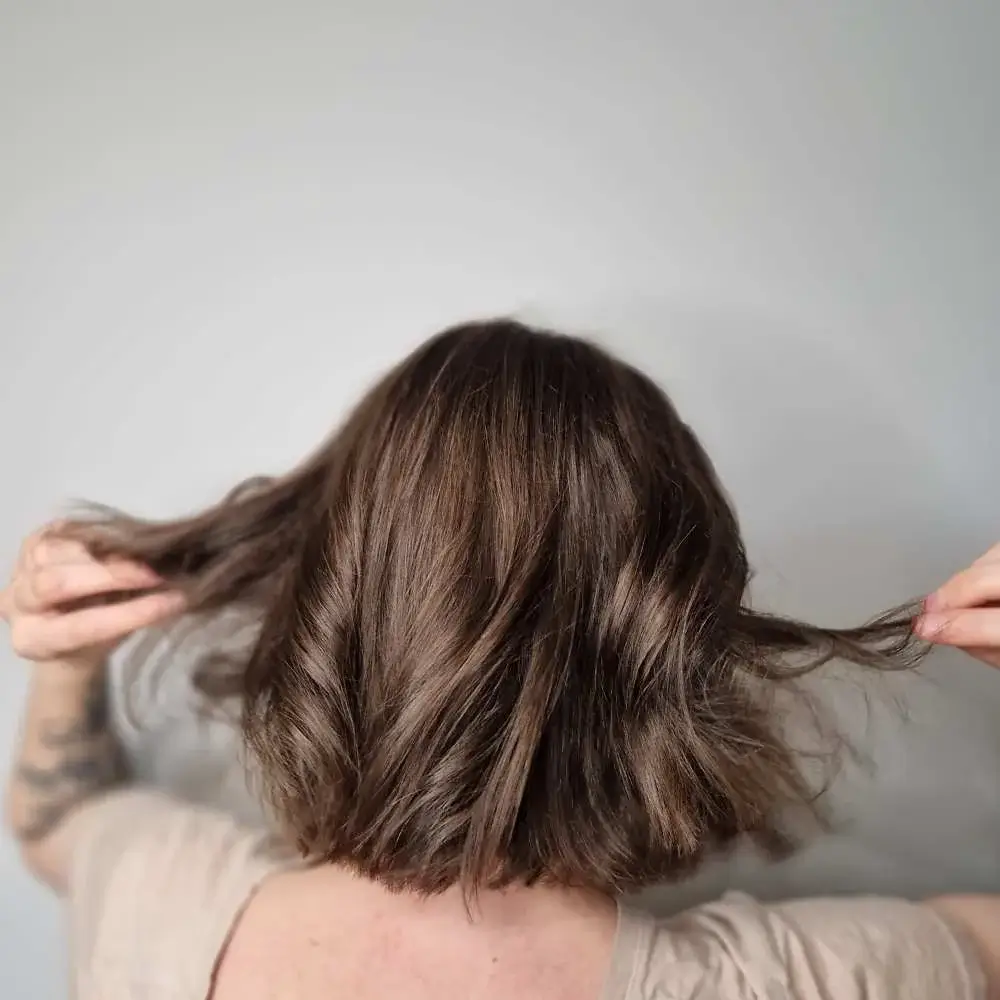
How to Maintain an Itch-Free Scalp
Achieving an itch-free scalp is one thing, but maintaining it requires consistent effort and a tailored hair care routine.
In this section, we'll discuss some essential tips on how to maintain an itch-free scalp and prevent future flare-ups.
1. Stick to a Consistent Hair Care Routine
Consistency is key when it comes to maintaining a healthy, itch-free scalp.
Use your chosen shampoo and conditioner regularly, following the manufacturer's instructions and the best practices we discussed earlier.
2. Avoid Harsh Hair Products
Steer clear of hair products containing harsh chemicals, sulfates, and synthetic fragrances, as these can irritate your scalp and trigger itchiness.
Instead, opt for gentle, hypoallergenic products specifically designed for sensitive or itchy scalps.
3. Be Mindful of Your Diet
Believe it or not, your diet can play a role in the health of your scalp.
A well-balanced diet rich in essential nutrients, vitamins, and minerals can help promote overall skin health, including your scalp.
Consider incorporating foods rich in omega-3 fatty acids, zinc, and vitamin E, as these nutrients can help support a healthy scalp.
4. Keep Your Scalp Clean
Maintaining good hygiene is crucial for keeping your scalp itch-free.
Wash your hair regularly, but be cautious not to overdo it, as excessive washing can strip your scalp of its natural oils and lead to dryness and irritation.
5. Manage Stress Levels
Stress can have a significant impact on your skin, including your scalp.
High stress levels can trigger inflammation, leading to an itchy scalp or exacerbating existing issues.
Practice stress management techniques like meditation, exercise, or deep breathing exercises to help keep your stress levels in check.
6. Protect Your Scalp from Environmental Factors
Environmental factors like sun exposure, pollution, and harsh weather conditions can take a toll on your scalp's health.
Protect your scalp by wearing a hat or using hair care products with built-in UV protection when spending time outdoors.
7. Be Gentle When Brushing and Styling
Treat your hair and scalp with care when brushing and styling to avoid unnecessary irritation.
Use a wide-toothed comb or a brush with soft bristles to detangle your hair gently, and avoid hairstyles that pull tightly on your scalp.
8. Monitor Changes and Seek Professional Help if Needed
Finally, stay vigilant and monitor any changes in your scalp's condition.
If you notice persistent itchiness, redness, or other symptoms that don't improve with your current routine, consult a dermatologist or trichologist for professional advice and tailored treatment options.
Maintaining an itch-free scalp is an ongoing process that requires consistent effort and attention to your hair care routine, diet, stress levels, and environmental factors.
By following these tips and staying proactive in managing your scalp's health, you can enjoy the comfort and confidence that comes with having a healthy, itch-free scalp.
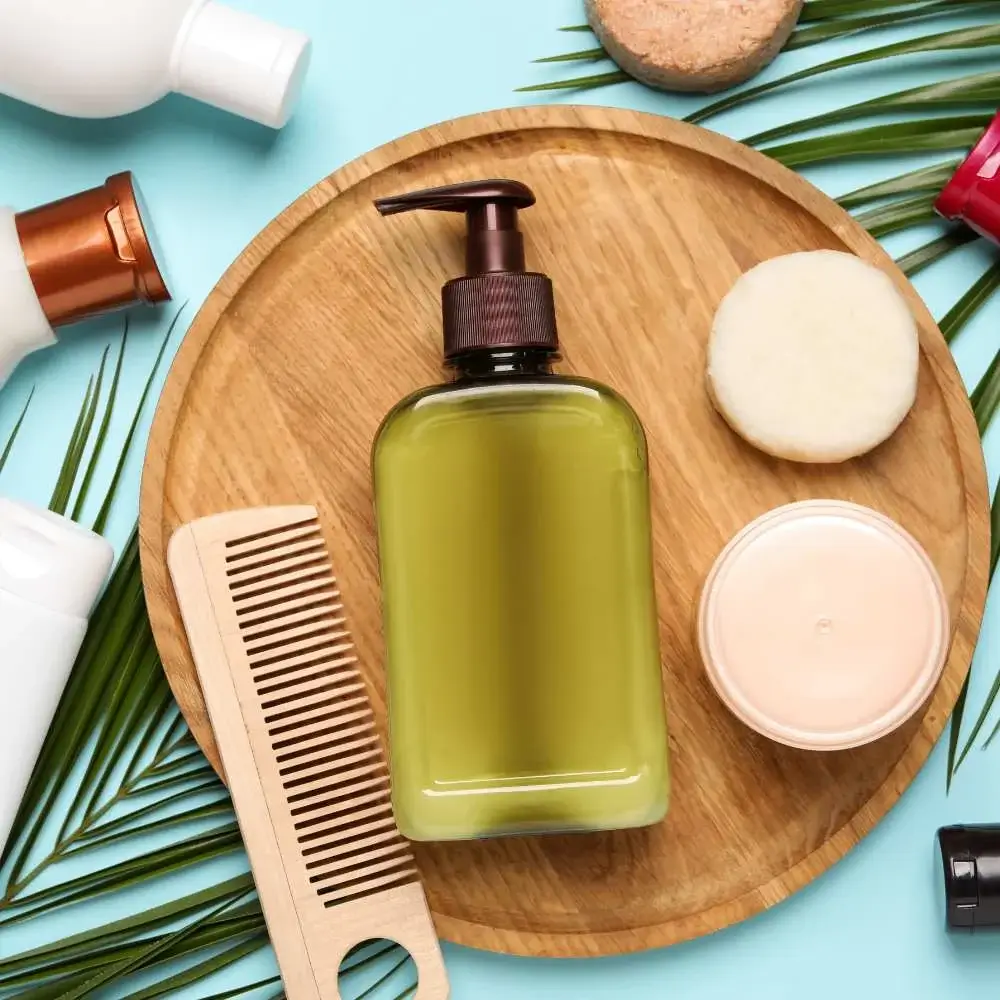
Itchy Scalp Uncovered: Frequently Asked Questions and the Answers You Need!
How do I get my scalp to stop itching?
First, assess your hair care routine – are you using the right shampoo? Make sure to opt for a gentle, sulfate-free formula designed to soothe and moisturize your scalp. Next, don't forget to give your scalp the TLC it deserves by massaging it during shampooing. This helps improve blood circulation and distributes natural oils evenly. Also, limit the use of heat styling tools and chemical treatments, as these can aggravate the itchiness. Lastly, stay hydrated and maintain a balanced diet – remember, a happy body equals a happy scalp! With these itch-fighting tips in your arsenal, get ready to say goodbye to that annoying itch and hello to a soothed, itch-free scalp!
What shampoo is good for itchy scalp?
When hunting for that itch-banishing shampoo, keep your eyes peeled for gentle, sulfate-free formulas infused with soothing ingredients like tea tree oil, aloe vera, or chamomile. These magical components are known for their calming properties and will help alleviate that troublesome itch. Bonus points if the shampoo also contains nourishing oils like jojoba or argan oil, as these provide much-needed hydration to your scalp! So, next time you're wandering through the shampoo aisle, remember to seek out these itch-fighting superheroes. Your scalp will thank you, and you'll be one step closer to a blissfully itch-free existence!
Can itchy scalp cause hair loss?
While an itchy scalp itself isn't a direct cause of hair loss, it can certainly contribute to the problem. Persistent scratching due to itchiness can weaken your hair follicles, causing breakage and, in some cases, even temporary hair loss. Moreover, underlying conditions like dandruff, seborrheic dermatitis, or psoriasis could be the culprits behind both your itchy scalp and hair loss woes. The good news? By addressing the root cause (pun intended) and following a proper scalp care routine, you can restore balance and put an end to this hair-raising issue. So, bid farewell to that itch and embrace a lush, healthy mane!
Can I wash my hair everyday if its itchy?
While it might be tempting to lather up your locks every day in hopes of soothing that itch, doing so can actually strip away your scalp's natural oils, leaving it even drier and itchier than before. Yikes! Instead, opt for washing your hair every two to three days, and when you do, make sure to use a gentle, sulfate-free shampoo designed to calm and nourish your scalp. In between washes, you can try using a refreshing scalp mist or dry shampoo to keep your mane fresh and itch-free. By following this itch-busting routine, you'll be striking the perfect balance between cleanliness and scalp health, all while keeping that bothersome itch at bay!
Can sweat cause itchy scalp?
The answer, my friends, is yes. When sweat accumulates on your scalp, it can mix with oils, dirt, and even hair care products, creating a not-so-pleasant cocktail that can irritate your skin, leading to that dreaded itch. But don't worry, you won't have to quit your workout routine just yet! The key is to keep your scalp clean and fresh. After a sweat session, be sure to rinse your hair with cool water, or better yet, wash it with a gentle, sulfate-free shampoo designed to soothe your scalp. And remember, staying hydrated from within is just as important – so, drink up that H2O! By following these simple steps, you'll keep your scalp happy and itch-free, even when you're working up a sweat!
Read our article about best cruelty free lipstick here!
Read our article about best lip balm for men here!
Read our article about best hair brush for fine hair here!







